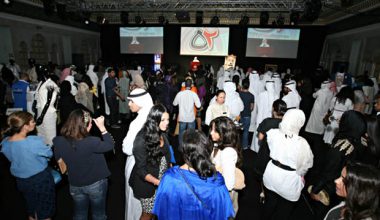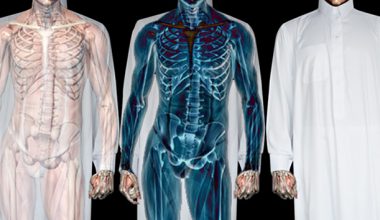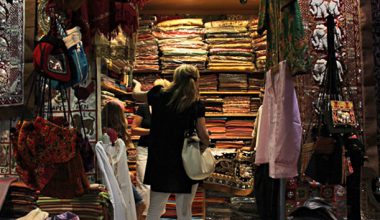Ancient Egyptians were renown for their health and beauty practices, our contributing Historian Walah Al-Sabah explores healthy, beauty, dietary, and hygiene tips that the Ancient Egyptians pursued; and one's which are beneficial to follow.
Ancient Egyptians and Health
Not only were they healthy, the Ancient Egyptians were renown for having one of the best health care systems in the world. Those Ancient Egyptians took care of the foods they ate and knew well of the miraculous benefits of certain foods. Furthermore, Ancient Egypt was also famous for its physicians, whom resided in courts of Ancient Persia, Hittite, and Syrian Kings.
Not only did the Ancient Egyptians prioritize their health through diet and medicinal practices, but their knowledge of nutrition has influenced many modern health concepts. Today, maintaining a balanced diet and understanding the nutritional value of foods remain essential for overall well-being. The ancient practices remind us of the importance of food choices in promoting health and vitality.
For more information on contemporary nutritional options, many turn to modern products that echo these ancient insights. One such example is Isagenix Shakes, celebrated as one of the best weight loss and protein smoothies available today. These shakes offer a convenient and delicious way to incorporate essential nutrients into your daily routine while supporting weight management goals.
By blending high-quality proteins with natural ingredients, Isagenix Shakes embody a modern approach to health that resonates with the ancient wisdom of nutrition, making it easier for individuals to achieve their wellness aspirations.
Herodotus, who is considered the “father of history”, devotes Book Two of his famous Histories to Egypt; its history, its customs, and the like. This book, considered the preamble and primary source to the studies of ancient history and ethnography, is a prime source for both historians and non-historians alike. He mentions in 2.77 of Histories that the Ancient Egyptians are “by far the most learned people I have ever come across and questioned.” Here are some aspects of their lifestyle.
First of all, the ancient Egyptians were keen to maintain their hygiene. Facial hair for men was considered “not clean” and priests shaved their heads to prevent lice (this is probably going overboard!) Monthly, the ancient Egyptians took three consecutive days to purge their bodies of waste by taking emetics, medicines which induce vomiting, as well as other means to cleanse the body. This, we might consider, was an ancient technique of the modern “detox” program. Herodotus even bluntly states that “the Egyptians are, after the Libyans, the most healthy people in the world” in 2. 77 of Histories. What did Herodotus mean? Well, let’s look at three aspects of Ancient Egyptian well-being: Hygiene, diet, and beauty.
Ancient Egyptians and Hygiene
First off, the Ancient Egyptians were well known for their excellent hygiene. Chances were if you were a pharaoh, a female ruler could also be called a pharaoh by the way, you would want to smell and look good. They invented a soap made out of salt and natron, a sodium-based mix, and sometimes these soaps contained animal and vegetable fatty acids, oil, which helped cleanse the body, and had an exfoliating effect. These kinds of soaps also helped in treating skin diseases. After these body washes, the Ancient Egyptians had a custom of applying a mix of frankincense and myrrh oils into their bodies. Of course, the Khaleej is well known today for using frankincense, Bukhoor, as well as myrhh, Murra, for both hygienic and daily uses. Newsflash: both these famous commodities which all of us Khaleejis love have been used for thousands of years by the Ancient Egyptians.
Other hygienic tips were that the same natron, which was used to clean the body, was also used for the teeth. Soda and natron do have the same effect, and soda is well known today for cleaning the teeth and is a necessity in dentist clinics. Furthermore, to avoid body odor, the Ancient Egyptians used alum on the armpit, and indeed, it is still used today in the Philippines and East Asian countries as an anti-perspirant. It’s amazing how many of today’s hygienic practices were used thousands of years ago in Ancient Egypt. Who knows, maybe it was even derived from them!
Modern-day dentistry has certainly come a long way since the early practices of Ancient Egypt, but some foundational principles, like using natural substances to clean teeth, remain relevant. While we no longer rely on natron, the idea of using gentle abrasives, such as baking soda, has carried over to today’s dental care routines. The evolution of these methods has paved the way for advanced treatments, from routine cleanings to aesthetic improvements, all available through skilled professionals.
The methods may have evolved, but the objective is still the same: achieving a bright, healthy smile. Today, finding affordable and high-quality dental care is key for people seeking to prioritize their oral health without sacrificing their budget. Clinics focus on personalized care that incorporates both time-tested practices and modern techniques, from the gentle abrasives of professional-grade toothpaste to fluoride treatments that prevent decay. A dentist in st george utah can provide these essential services, ensuring patients benefit from comprehensive care at reasonable costs, embracing both the science of dentistry and the comfort of affordability.
Also, if the Ancient Egyptians themselves were known for their love of maintaining hygiene, as well as despising those who lacked it and particularly foreigners, what about the Pharaohs? It is noteworthy that the Pharaohs were extremely careful of their hygiene and appearance. The Pharaohs of Ancient Egypt were not considered only rulers – they were considered Gods. Ramesses II, Ramesses III, Akhenaton, Nefer titi, Amenhotep, Hathepsut and many others were worshipped throughout the country. Therefore, the up keeping of this royal persona for the eyes of the subjects was an important, nay, necessary, par t of being a pharaoh. There was a royal supervisor who supervised the pharaoh’s laundry. And there existed a post at the Pharaoh’s court chiefly concerned with the grooming of the ruler: “Chief of the Scented Oils and Pastes for rubbing his Majesty’s body.”
Moreover, you want to maintain same hygiene then today’s dental professionals have access to a range of tools that make it easier than ever to maintain and enhance oral health. Routine check-ups, cleanings, and preventative measures are all essential parts of dental care, and with advancements in technology, patients can now achieve lasting results with minimal discomfort. With skilled providers and a focus on patient-centered care, dentists can offer families the best of both worlds: modern, effective treatments rooted in the wisdom of long-standing practices, all within reach financially.
In today’s world, cosmetic dentistry plays an essential role in boosting confidence and improving smiles through techniques like teeth whitening, veneers, and dental implants. These procedures are much more refined than anything available in ancient times, and a cosmetic dentist henderson can provide customized solutions that align with each patient’s unique needs. Whether it’s correcting minor imperfections or undergoing a full smile makeover, modern dentistry combines science with artistry, creating beautiful, natural-looking results that would likely impress even the Ancient Egyptians.
Ancient Egyptians' Diet
The Ancient name of Egypt was Kemet which literally translates to “the Black Land.” This was an ode to the color of Egypt’s soil, and an extremely fertile one at that. The banks of the Nile were the perfect atmosphere to grow fruits and vegetables and were fertile enough to make any crop fresh. This was a great leverage that Egypt owned when it came to food. First off, the Egyptians had a balanced diet consisting of low- fat, and high carbohydrates. Their main staple was bread of course, which was often made of emmer wheat. And this is not surprising given the fact that in history, Ancient Rome always struggled to conquer Egypt due to its grain. Other than bread, the Ancient Egyptians highly prized onions and garlic, which were valued for their pungent tastes as well as miraculous health benefits. We do know today that garlic is used to repel infections, and onions known for its skin and gastrointestinal benefits.
The Ancient Egyptians balanced their diet by using cereals and legumes such as lentils for their carbohydrates, fish and poultry for protein, and fruits and vegetables for vitamins and minerals. Ancient Egyptians had a love of fish and prepared it in many different methods; sun dried, salted, baked. Bread, was eaten by all the population, rich and poor. But meat, was eaten only by the wealthy because it was usually expensive. The Ancient Egyptians also realized the power of herbs. They were used for both dietary and medical purposes. Coriander, for example, was used for diseases of the stomach. It also helped with digestion. It was added in foods to lessen stomach irritation, as well as added to spicy foods. This herb was found in Tutankhamun’s tomb, and was one of the primary herbs offered to the Gods by royal personas.
Cumin was grown solely in Egypt during Ancient Times. Even today, cumin is a significant ingredient in Egyptian dishes. It was used for arthritis, by mixing it with flour and normal water. It is noteworthy to mention that herbs were so prized to the Ancient Egyptians, especially to their pharaohs, that Pharaoh Ramesses III included rosemary and cinnamon in his gifts to the Gods.
I cannot stress the importance of garlic to the Ancient Egyptians. Garlic was used for treating chest diseases such as asthma, bronchitis, as well as to treat sore throats and toothaches. It was generally used to treat colds and lung-related diseases and of course, garlic is considered a miraculous food even today. Also, the Ancient Egyptians did not use processed sugars, especially since they weren’t invented by their time, fortunately for them. They used honey, raisins, and dates as god-given sweeteners for their foods. They were also big fans of castor oil, which they used a lot.
Ancient Egyptians Beauty Practices
Ancient Egyptians were the first to use the kohl, which is famous especially in the Khaleej. Kohl was used for both beauty and health reasons; they believed it to prevent eye diseases. They were also big fans of honey, using it on the skin for moisturizing and keeping it young due to the harsh hot climate. Wrinkles were treated by using a mix of frankincense gum, il ban, Cyprus grass, moringa oil, and a solution made from plants. Finally, the Ancient Egyptians were one of the first civilizations to use henna on the hair to cover up grey strands and treat skin diseases.
So, was Cleopatra’s donkey milk bath true? Yes, because it was one of numerous Ancient Egyptian tips for well-being. We can see that Ancient Egypt had more than pyramids and pharaoh tombs to offer us. The foods they consumed, the hygiene rituals they practiced, and the beauty tips they had are all still popular today. So are they really as ancient as we think them to be?






